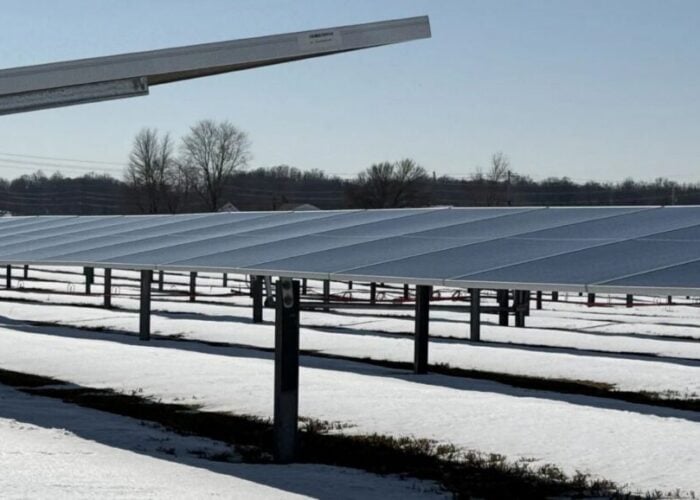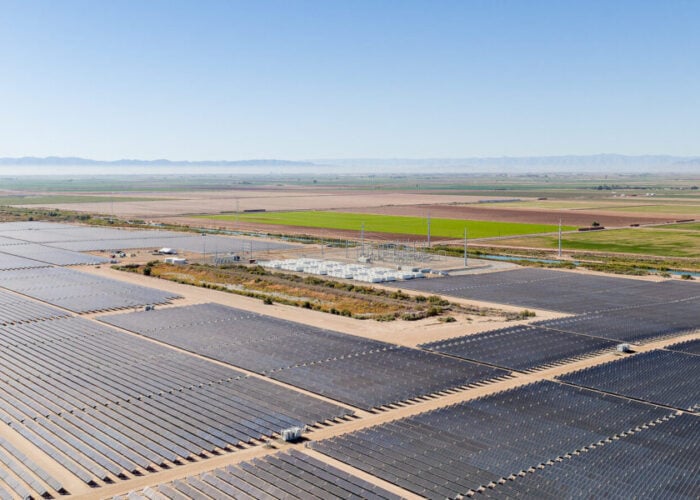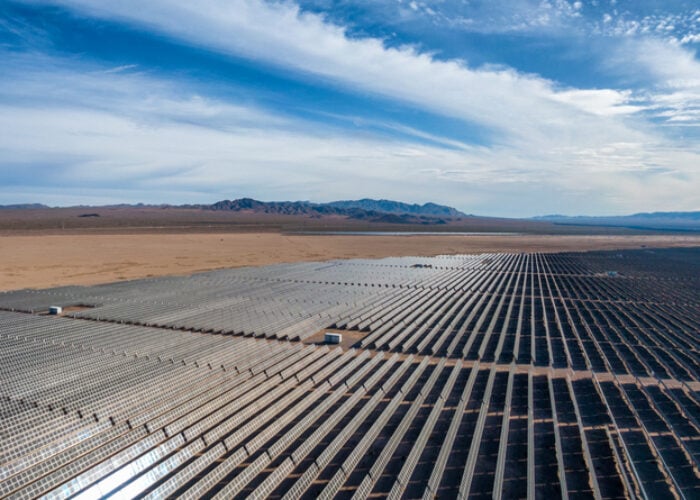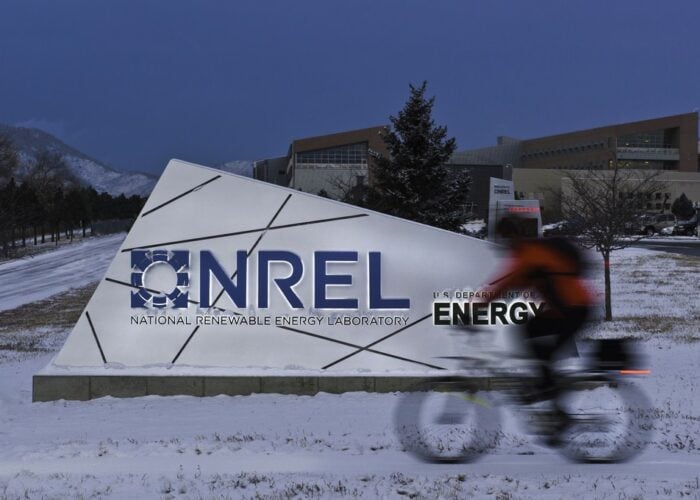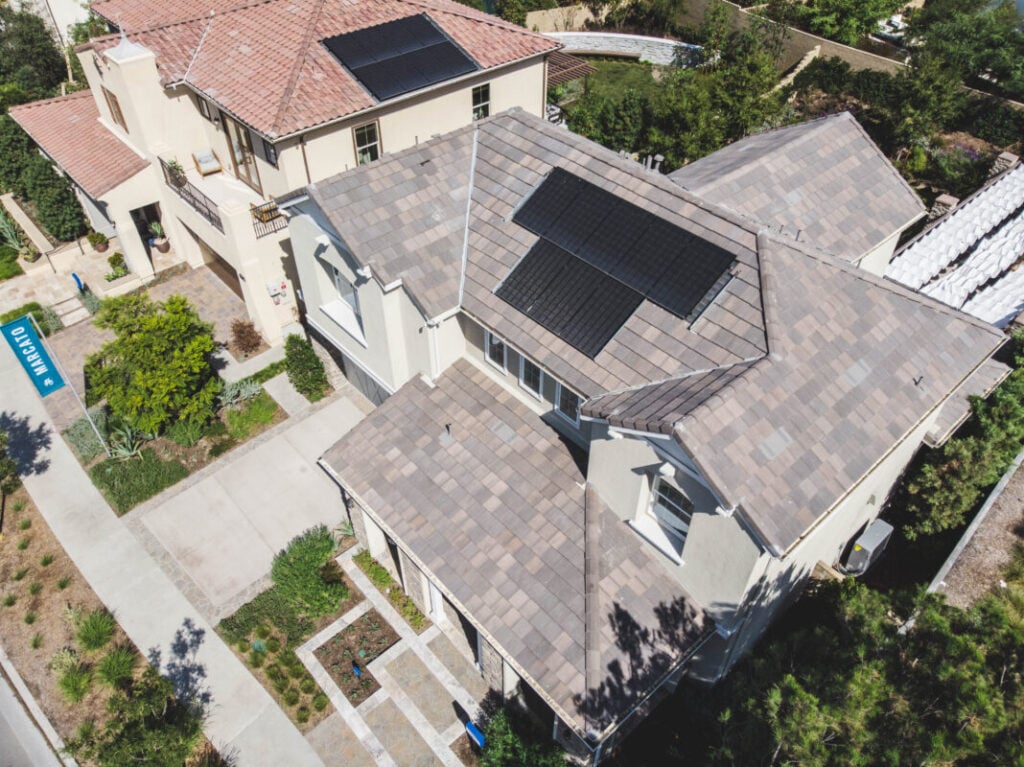
US residential solar companies Sunnova and Solar Mosaic have filed voluntary petitions for relief under Chapter 11 of the US Bankruptcy Code.
Both companies filed for Chapter 11 relief in the US Bankruptcy Court for the Southern District of Texas.
Try Premium for just $1
- Full premium access for the first month at only $1
- Converts to an annual rate after 30 days unless cancelled
- Cancel anytime during the trial period
Premium Benefits
- Expert industry analysis and interviews
- Digital access to PV Tech Power journal
- Exclusive event discounts
Or get the full Premium subscription right away
Or continue reading this article for free
In the case of Sunnova, the filing comes only a few days after the company unveiled it had laid off more than half of its workforce, affecting nearly 718 employees. It also follows one of its subsidiaries from Delaware, Sunnova TEP Developer, which also filed for Chapter 11 last week.
By filing the Chapter 11, Sunnova aims to facilitate a sale process for certain of its assets and business operations, while continuing to operate its business throughout the sale process. The company expects to complete the marketing and sale process in nearly 45 days.
“Today’s actions mark a critical step towards securing a value-maximising outcome for Sunnova’s stakeholders,” said Paul Mathews, CEO of Sunnova.
“Throughout this process, maintaining continuity of service for our customers is our top priority as we work to secure a long-term solution for our business operations under new ownership.”
Moreover, Sunnova announced that it entered into an asset purchase agreement between Sunnova Energy Corporation, Sunnova TEP Developer, Sunnova TEP Holdings and Sunnova TEP Holdings Subsidiary, under which certain solar systems, and rights and customer agreements related to them, will be sold to TEPH Subsidiary. The purchase price of US$15 million will be paid from proceeds borrowed under TEP Holdings’ existing warehouse credit facility.
On top of this, investment firm ATLAS SP Partners, Sunnova and certain of its affiliates have also entered into a settlement agreement which will see Sunnova facilitate Atlas’ direct negotiations with certain dealers and installers that have worked with the residential solar company in the past “with the goal of completing certain in-process solar systems”, said Sunnova.
Finally, the company entered into an asset purchase agreement with home construction company Lennar Homes for the acquisition of certain assets related to Sunnova’s New Home business for approximately US$16 million.
Mosaic’s restructuring and recapitalisation
Furthermore, Mosaic’s filing intends to complete a restructuring and recapitalisation supported by certain of its existing lenders, including financial firm Forbright Bank, which is acting as administrative agent on behalf of lenders, while simultaneously conducting a comprehensive marketing process of its platform and other assets of the company.
According to the company, macroeconomic challenges in the residential solar industry – such as high interest rates and the Reconciliation Bill aiming to remove tax credits for residential solar – have impacted Mosaic’s flow of capital.
“Today’s announcement marks a significant step for Mosaic to address our financial position amid the macroeconomic challenges facing the residential solar industry as well as the recent legislation passed by the House that rolls back residential solar tax credits,” said Patrick Moore, Mosaic Chief Executive Officer. “Throughout this process, we remain focused on maintaining stability for our customers, business partners, and employees.”
Mosaic will receive US$45 million in debtor-in-possession financing from its existing lenders, including $15 million in new money financing. Following court approval, this financing is expected to fund the company’s ongoing operations and administrative expenses during the Chapter 11 cases.
Residential solar downturn
Sunnova and Mosaic join other residential solar companies which have filed Chapter 11 bankruptcy in the past few months. Last year, residential installers SunPower and Lumio also filed for Chapter 11, while residential installer Titan Solar Power abruptly ceased operations in June 2024.
Soon after it filed for Chapter 11 in August 2024, SunPower entered into an asset purchase agreement with residential solar company Complete Solaria —which is the result of a merger between companies Solaria Corporation and Complete Solar— for the assets associated with SunPower’s Blue Raven Solar business, New Homes business and non-installing Dealer network, to be sold for US$45 million. Complete Solaria recently changed its name to SunPower and also its stock market ticker symbol to SPWR.
The US residential market has seen several residential players shut down their activities, while the market is expected to take several blows that could have a long-lasting effect on the segment. The US Senate is currently discussing the Reconciliation Bill, which, among other negative proposals (Premium access) affecting the solar industry, aims to bring forward the end date for residential tax credits (Section 25D) to the end of 2025.
At the same time, one of the leading states in residential solar, California, the California State Assembly’s Appropriations Committee passed a net metering bill (AB 942) that could worsen residential solar owners’ rates when acquiring a property. If approved, the bill aims to implement the changes from 1 January 2026 and would expose new owners to a nearly 75% decline in net metering payments between the current net energy metering (NEM3.0) and previous iterations.
Even though California led residential solar installations in the first quarter of 2025 with 255MW, it was the state’s lowest quarterly additions since Q3 2020, according to recent data from the Solar Energy Industries Association (SEIA). More broadly, residential solar in the US was down 13% year-on-year and 4% on a quarterly basis, with 1.1GW of new solar added in Q1 2025.

